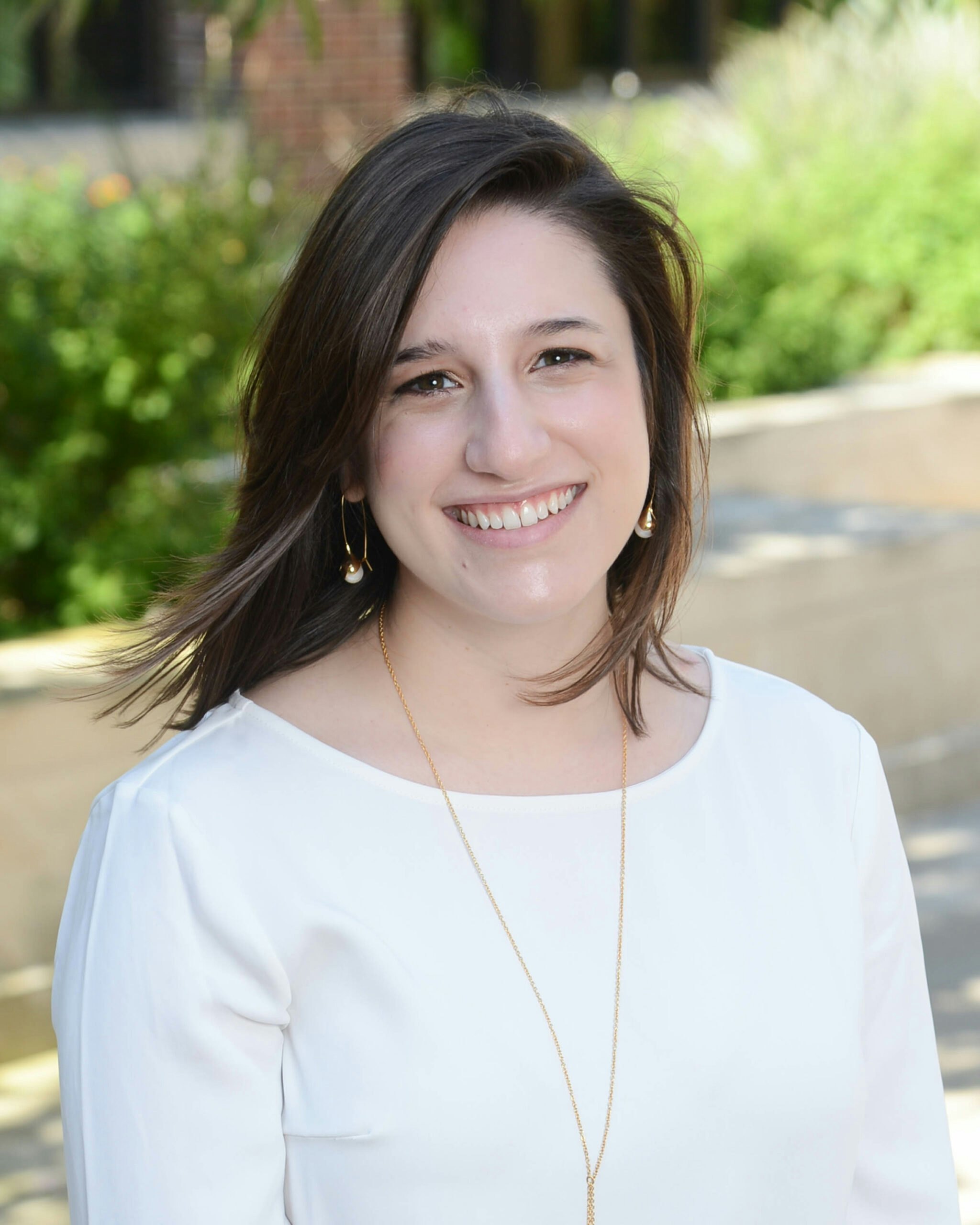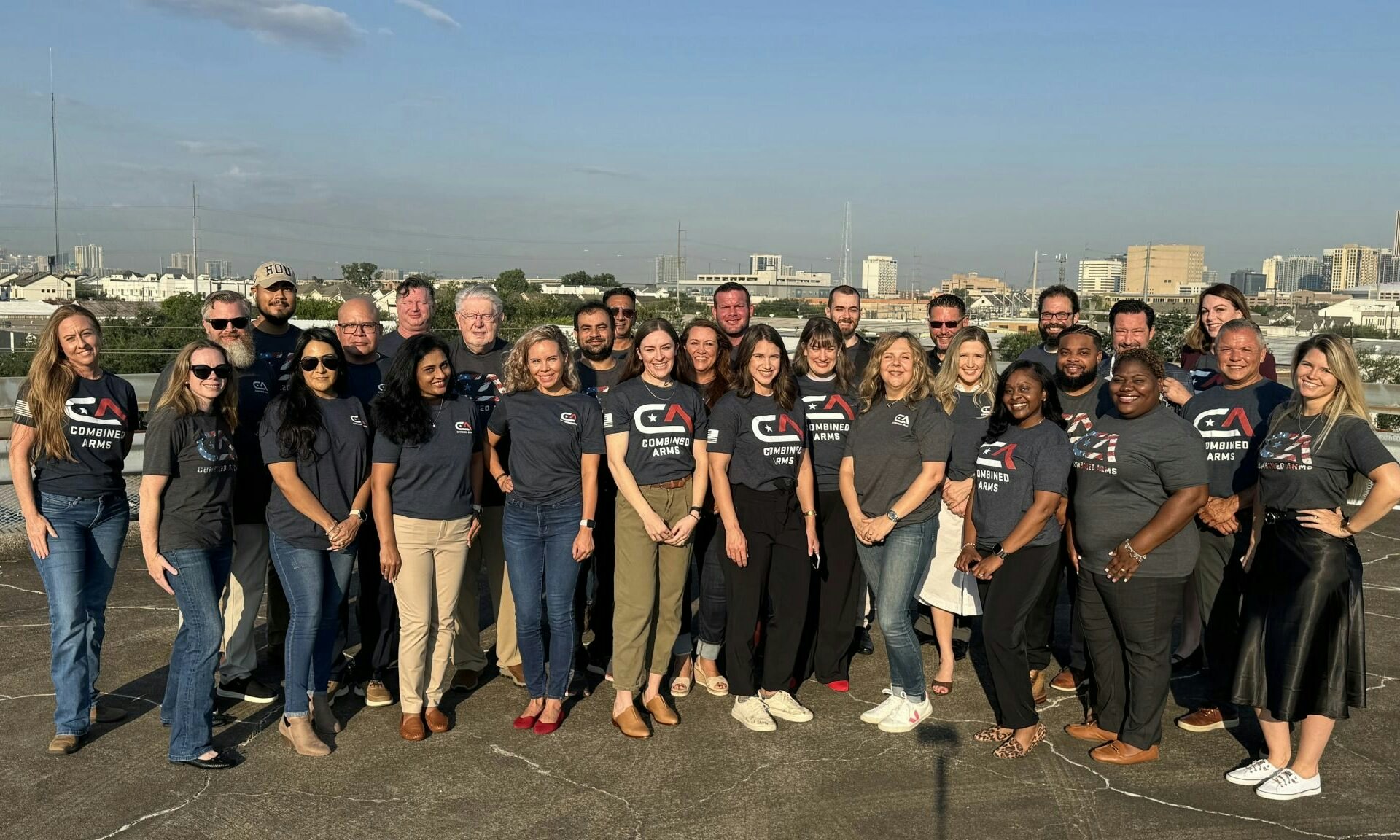We sat down with the Medal of Honor recipient and Team 43 golfer to talk about his experience at the Warrior Open and the unique healing properties of golf.
During Warrior Open week, we sat down on location with Medal of Honor recipient and Team 43 golfer Sal Giunta to talk about his experience at the Warrior Open and the unique healing properties of golf.
Read the episode transcript
Transcript
00:00 Andrew Kaufmann: Staff Sergeant Sal Guinta had listed in the Army in 2003. In July 2005, he was shot in his left calf in Afghanistan, and that’s where the story ends if you ask Sal. But if you Google Sal Guinta, there is so much more to his story than being shot in his left calf. In October 2007, Sal deployed for a second time to Afghanistan, he was leading his team back to base when they were ambushed with a force that outnumbered Sal and his troop. As the team was being fired at, Sal ran through the intense wall of fire to help those who are injured get back to safety. On November 16th, 2010, Staff Sergeant Guinta was awarded the Medal of Honor for his actions in 2007. The Medal of Honor is the United States’ highest military decoration and Sal is the first living recipient since the Vietnam war. But holding the honor with our nations bravest Sal said…
00:52 Sal Giunta: “They are our biggest and our fastest and our strongest and our bravest and the most selfless people and I’m just trying to keep up with the group. To be around such incredible folks, it takes all my effort just to keep pace.”
01:04 AK: Staff Sergeant Guinta is one of the most humble man you’ll ever have the opportunity to talk to and it was an honor to share the mic with him. I’m Andrew Kaufmann and this is the strategerist, presented by the George W Bush Institute.
[music]
01:19 AK: What happens when you cross the 43rd President, Late Night sketch comedy, and compelling conversation? The strategerist, a podcast born from the words “strategery” which was coined by SNL and embraced by the George W Bush Administration. We highlight the American spirit of leadership and compassion through thought provoking conversations and we’re reminded that the most effective leaders are the ones who laugh.
01:43 AK: We’re recording live today at the Bush Institute Warrior open, our competitive golf tournament that honors the many heroes who have volunteered to protect our nation, and we’re incredibly lucky to have as our guest Medal of Honor recipient, Sal Guinta, who is fresh in from the course. Sal, thank you for spending some time with us.
02:04 SG: Yeah, thanks for having me.
02:05 AK: And our co-host today is Britney Bane, the Director of Communications for the Bush Institute with the focus of the military service initiative. Britney, thanks for joining us.
02:13 Britney Bane: Yeah, thanks for having me.
02:15 AK: So Sal, how’s your shoot today?
02:16 SG: Yeah, it was a shamble format. So I did fantastic, I had four people to carry me, it was a lot of fun. This is our third day playing the course. We had a practice day and then we played the tournament yesterday, and I just met so many great folks now. So it’s hard to beat, really.
02:33 AK: What is the… What have these couple of days been like for you hanging out with the guys, like how’s your experience been… This is your first warrior open, how’s it been?
02:40 SG: It has been fantastic, I get to have a… I get to meet a lot of people and I get to have a lot of conversations, but it’s a three to five minute conversation, and to come out here and meet folks that are just like me, I’m making real friends, that seems crazy to say, but I don’t make friends that often. I’m a friendly guy, but we’re acquaintances and we’re just nice to each other, but to make true friends, I’ve made real friends being here and only within three days, there’s people that I’m gonna link up with again and hopefully play some more golf and just share some more life experiences with.
03:12 BB: That’s great, so last night, we had dinner and you all sat with President Bush and Mrs. Bush, they hosted you for dinner, and you said something about how being with this group in particular just really gives you hope for the country, can you tell us more about that?
03:25 SG: It does, you start hearing these individual stories and you listen to… You know they’ve sacrificed, you can… Their body has paid the price for their sacrifices and you hear what’s important to them, and it has nothing to do with them, it’s always about the next thing, it is truly golf. Your last shot can be great, but it’s what you’re doing next that really matters. And the folks that are here are really focused on what’s next, and not for themselves as individuals, but for the veteran community, for the country, it’s pretty darn powerful. There’s reasons… These guys… The things that they’ve accomplished, I don’t think they have too much else to prove and yet they’re not stopping, they’re continuing to improve themselves so they can be more useful in the future and that fires me up, I’m a pretty excitable guy and there’s a lot of people here getting fired up.
04:12 AK: The most important thing about all of this is just to get out there and be active. What has the golf meant to you in particular?
04:19 SG: For me, golf has been a part of my life in a big way. I grew up on a little city course in Cedar Rapids, Iowa. I’d walk out, maybe nine years old and play golf all day until I was too tired to cause trouble and then go home and not be in trouble. And it taught me to look people in the eyes and be honest. You can tell whatever story you want, but honesty is it, your face value, there’s no bio in a regular round of golf, you just get paired up with some other folks, and you see who they are and four hours you get a chance to see how they carry themselves. And so golf gave me that. Now I don’t have a whole lot of reasons to spend multiple hours outside. I wish I did, I love being outdoors and golf provides three, four hours I can go outside, I can walk, I can get some exercise, I can think about other things. Golf really provides me peace. I wish there was more things in my life that gave me the peace that golf does ’cause this is a crazy game.
05:17 AK: Yeah, it is.
05:18 SG: Sometimes it’s really ugly, but it’s still peaceful to me. It’s been… It’s helped me feel like me and there’s not a whole lot of things that allow me this. And I think that same thing about this exact tournament, if we were playing golf, just being back, being around these folks that most of them I’ve never met, I feel like I’m back with the group again, and that’s where I wanna be.
05:38 AK: Yeah, it’s so inspiring to see you guys giving each other heck and just having a great time on the course and just being back in action, so to speak. And you’re just one of the guys even though you did get awarded the Medal of Honor, the highest award of the military, can you tell us what it felt like when you were nominated?
05:54 SG: When I found out that they put me in for the Medal of Honor, in all honesty, I was pretty hurt. This is not a good thing. I have known about the Medal of Honor. I’ve never met a Medal of Honor recipient at the time, but they are our biggest, and our fastest, and our strongest, and our bravest, and the most selfless people, and I’m just trying to keep up with the group. To be around such incredible folks, it takes all my effort just to keep pace. And to be recognized with this award. It’s not a life-time achievement award. It’s a moment in time award, and what it represents is the biggest, the bravest, and the fastest. It represents… There’s so many people that do incredible things that don’t get recognized, and I think the word for me now gives me a voice. Well, at least people listen to what I’m saying. I’ve been talking my whole life, but about eight years ago, people started listening. It gives me a chance to talk about those around me. They are the people that made me, I am a product of my environment. You can like it or not, but I’ll tell you, the people around me have been very positive, and have always led from the front, and this award allows me to stand on my soapbox, and tell the story about those folks.
07:03 AK: What did it feel like when you were on that stage receiving that award? What was that like?
07:07 SG: That day was a very nerve-racking day for me. I’m a pretty social guy. But to be in that place, and be recognized, and again, alone. I’m on the stage alone with the president. It felt wrong. In the front row I had my family, and behind my family I had Sergeant Brennan’s family and Specialist Mendoza’s family. Two guys, two friends of mine that were killed that very night. And to have them part of that was important, and I remember just to stand in there on the stage feeling nervous and sad that I’m the only one standing here. And looking at those families and the pride that they had knowing that we are in this together. It was a pretty powerful day for me. It was an incredibly powerful day for me.
07:52 BB: That’s pretty remarkable. And so you didn’t keep it right? You gave it back.
07:56 SG: I did. It’s a French silk ribbon, and then it has a little star on it. It’s pretty light physically, but it is a huge weight, and it’s not a burden, because a burden is a negative thing, but it’s a huge responsibility. And when I put that on, I have to be the very best me that I can be as I should be all the time, but I really have to try, because I know what it’s representing, and it’s bigger than me, and it’s greater than me, and so for me to wear it, I kept on telling everyone it’s not me, it’s us. And yet that was around my neck, and I thought that I can’t keep on doing this. And it was a 4th of July, and I was over in Italy with the 173rd, and I’m looking out on a 1000 young men in the infantry, airborne infantry in a foreign country, preparing for combat that we’ve been in for the last 17 years. And it was a reunion. So next to them was about 100 guys from Vietnam, 173rd. We’re a very small unit. And I saw the present, and I saw the past, and the future was right there with them, and that’s where it belongs. It belongs with the guys and gals sticking it to the enemy and continuing to sacrifice every single day, and it felt like the right thing for me to do, and so I did it. It’s easier not to ask people. I just did it. I don’t know if that’s what I was supposed to… No, I know it’s not what I was necessarily supposed to do, but it is what I was gonna do, and no one was gonna stop me.
09:21 AK: It’s so amazing that we have such a volunteer force that is made up of men and women that live that creed every day, and we’re so honored to be able to spend a little time with guys like you. When you look back at that time, as you’re receiving the award, and you’re on David Letterman, what was that period in your transition like? Like everyone has a little bit of a different transition, yours was particularly different, your transition out of the military, given that you were a Medal of Honor recipient. What was that experience like? How did you accept your new reality?
09:56 SG: There was no choice, but to accept it. How it worked for me? It was different for me. It really changed my opinion. It changed how I address situations. At the time I was a Staff Sergeant, and the Staff Sergeant airborne infantry, I’m in charge of like eight guys, and to represent instead of going to a dinner and sitting in the back with my buddies, we’re… I’m sitting at the table with all the generals and the command sergeant majors, and I’m hearing that, you gotta think on a larger level. For me that transition… I gotta meet a lot of great folks. And I saw for the first time I spent my eight years in the Army. I spent seven and a half of them outside the United States of America. So there’s no one really waving American flags as you go to war and only your buddy’s wives are there when you come back, ’cause it’s a foreign country. To be able to come back to the United States and see the amount of support from the individual citizens was incredible. I never… My time in the military was all in a foreign country, and so that gave me the opportunity to see the heart of America, and it was so positive and so supportive, and there’s been so many people that have continued to support throughout this war, and that transition for me, it lightened my soul. It gave me… I have faith in people, and I don’t have to know them to trust them, I just, I can believe in them.
11:16 BB: So tell us about what you’re up to now? You were telling us before we started this interview that you’re studying for finals. You’re in school now.
11:22 SG: Yeah. I wanna be a life-long learner. I don’t know anyone who’s smart enough not to be, and I just wanna consume knowledge. I don’t know what my next adventure is, but I wanna learn so I can make myself useful for the adventures to come. And the GI bill that they offered to us from our service is an incredible benefit. But if you don’t use it, it’s worthless. And I didn’t want that to go unused. And I see folks… People go to college all the time. It was a little tense for me to sit in a classroom again at 32 years old, and look at these 18-19-year-old kids, but they’re smart, they’re incredibly smart, and to be able to learn from them. It’s truly been a blessing. I think, I’m pretty impressed with our university system at Colorado State. It’s a fantastic school. And what they do for our veterans too, they really make it as comfortable as possible. It’s an easy place to be.
12:21 AK: What do you study?
12:23 SG: Business, supply chain management. So, one more year and there is a light at the end of this tunnel. [chuckle] But, right now, a week from finals and playing golf today and not being in class, I’ve… I got that little panic monster inside. [laughter] I still feel pressure.
12:38 AK: Yeah, I think everyone has that panic monster on finals no matter who they are. But as President Bush has said, y’all are the bravest and the best. So, I think you can handle some finals. I don’t think that’s gonna…
12:48 BB: I think you’ll be fine.
12:49 AK: Yeah. You’ve stared down a tougher enemy than statistics, I think.
12:54 SG: I don’t know. [laughter] Some of this statistics stuff is confusing. It is truly, it’s good. I think putting my mind to work and focusing on the next thing I… If you do what you always did, you’ll get what you always got. And if you want something different, do something different. And it’s providing me that opportunity to do something different.
13:11 AK: And I know you’re learning in those classes and I hope the other students are learning from you ’cause President Bush says y’all have a PhD in life. I think there’s a perfect… That’s a perfect way of putting it. And if those other students in the class aren’t learning from you, they’re doing themselves a disservice ’cause every warrior to a man has a lot that they can impart to people.
13:28 SG: I 100% agree. I told you it fires me up just looking around. I played with Tyson yesterday. Tyson?
13:34 BB: Tyson Quink.
13:35 SG: Yes. And West Point guy, played football for West Point, center, double leg amputee, said he’s been playing golf for a year and a half. We just had a great day playing golf, joking about friendships and life and military and golf and families. And there’s nothing else like it. I don’t… I’ve never experienced anything else like it, I should say.
14:01 AK: What do you plan on doing next? So you’re working on your college degree, what else is… What else is in your future?
14:07 SG: I don’t really know. So I…
14:09 AK: That’s the way to live.
14:10 SG: Some steps at a time, right. Make yourself useful and you’ll be put to work. And so I’m in the process of making myself useful. My wife has been my rock. I am… It’ll be 10 years of marriage this year, we have two children, a seven-year-old daughter and a three-year-old son.
14:24 AK: So you met your… You were still in the service when you met, when you got married?
14:28 SG: I was, yes. And to see the family grow and to, you know, when you put other people in front of you… In the service, in uniform it’s easy because you understand how things work. In life, usually it’s a little bit I, I, I, and me, me, me ’cause you gotta take care of yourself as well. With the kids, you start putting them, putting them and trying to lead by example. And I think leading by example is to continue to affect positive change.
14:51 AK: Well, Sal thank you again for doing this. It’s been a real honor, and we hope you tell others about the Warrior Open, and the importance of finding that community again after your service. And just being active and you’re the perfect role model for that.
15:04 BB: Yeah, thanks for being here, and thanks for your service.
15:07 SG: Thank you. Saying that about the… I haven’t… I tore my ACL two months ago. I haven’t done anything, right, I’m not moving it that much. I got a brace on my leg. This got me out again. I just walked three rounds of golf. It is doing that for me, it is putting me back on my feet, getting me walking again, getting me moving, getting me rehabbing. It’s incredible. It’s truly incredible. I greatly appreciate the opportunity to be here.
15:34 AK: If you enjoyed today’s episode and would like to help us spread the word about The Strategerist, please give us a five-star review, and tell your friends to subscribe. We’re available on Apple Podcast, Spotify and all the major listening apps. If you’re tuning in on a smartphone, tap or swipe over the cover art, you’ll find episode notes with helpful information and details you may have missed. The Strategerist was produced by Ioanna Papas at the George W Bush Institute in Dallas, Texas. Thank you for listening.































